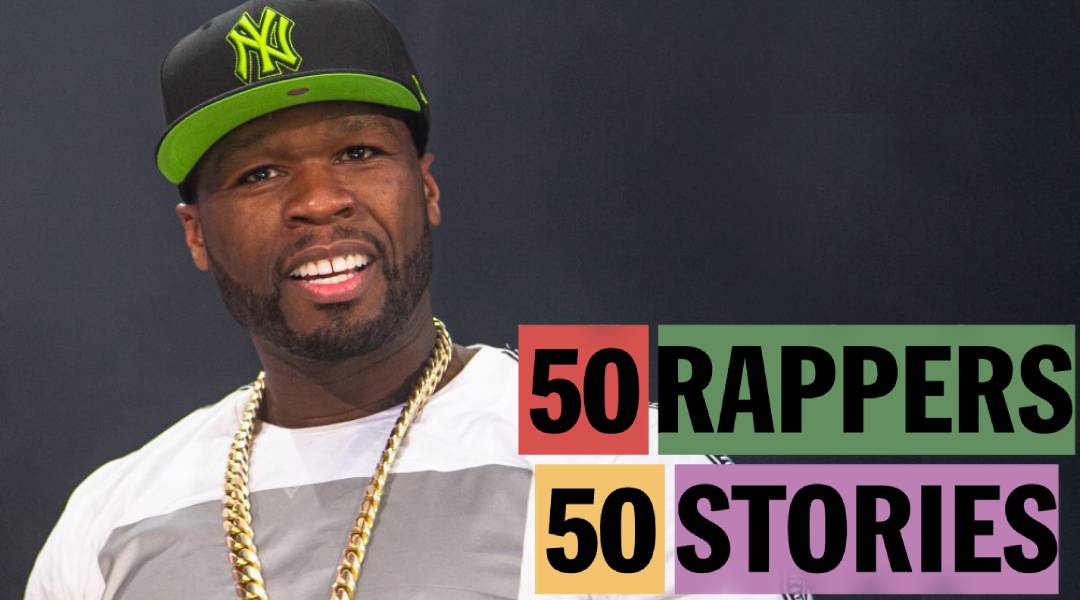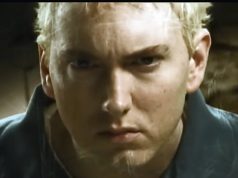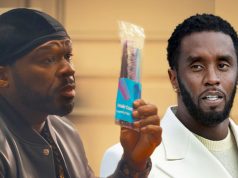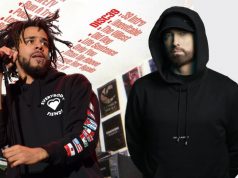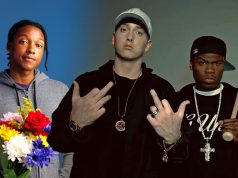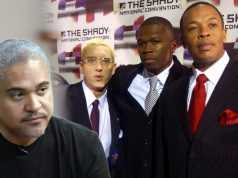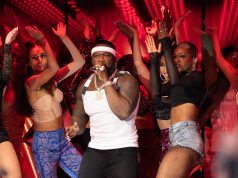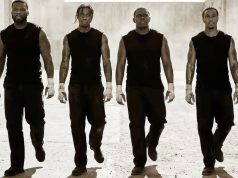Fifty was among 50 hip hop artists of all generations who shared their stories with New York times, putting together the jigsaw of the hip hop history.
50 Cent started his tale from his early fascination with music:
I fell in love with hip-hop, but it was only playing for one hour out the week on the radio. My grandmother used to go to church and take a tape recorder and record everything the minister said, and she would play Sunday service to herself again on like, Wednesday. She had all of these Maxell cassette tapes that once you record, you break the little tab off. I had to go get toilet paper and put it in the square and record over what she already had for the church. It was only on for one hour — I had to record it then.
This is back when KRS was out, he made such an impression on my career early on, ’cause creatively, that aggression that was there. I didn’t follow a complete blueprint of what he’d done, and at one point he got so much smarter than the audience that it wasn’t entertaining because it was like learning some [expletive]. It was teaching. That’s where he lost me a little bit. But when he came in the beginning, he had the competitive energy — that was what hip-hop was to me the entire time.
He said, “Manhattan keeps on making it, Brooklyn keeps on taking it/Bronx keeps creating it and Queens keeps on faking it.” And I’m from Queens! I liked it so much. But I didn’t know how I felt about it because of what it said.
If you look at that, then look at what I done at the desperation point where Columbia didn’t understand who I was as an artist. I was approaching the release date and I had to do something. I know I don’t have the momentum or anything. It’s going to not work, and it not working isn’t an option. So “How to Rob” — that’s my version of that energy.
Biggie and Tupac, following that, artists were afraid to say each other’s names. So Nas was saying “20 G bets I’m winning ’em, threats I’m sending ’em/Lex with TV sets the minimum.” It was him describing Jay-Z. “In My Lifetime.” Subliminally talking about each other without actually mentioning each other’s name.
My personality difference from the other artists, I’ve been bumped around more than them the entire journey. On my journey early on, it was rough. Then as the music business was doing it to me too, I kind of didn’t know how to not respond like the pit bull that you have outside in the yard.
Early on, Dre was like, I know what this is, this is N.W.A, it’s just one member. What Dre was telling me was that I don’t have to reach to get the audience to come [expletive] with me. They’ll come to me. But I was like, I need this other thing. I had worked out and I got myself into a good space physically. I needed the female audience to feel like they could fix me.
When I listened to great albums, they’ve had emotional moments. With Biggie, it’s “____ You Tonight” featuring R. Kelly. It would create a tone shift on a rapper’s album more like rapping as the feature on someone else’s R&B song. Like Dre specifically, that record, “21 Questions,” he was like, I don’t know why you want it. I hear it. It’s good, but you don’t need it.
The hardest person you could have a melody on a record was Nate Dogg. Nate Dogg will [expletive] you up! Having Nate was the coolest way to make a record like that still feel really hard, and for you not to question it.
I was creatively in pocket on the first record. But I became a star during the second album. The second album is when I found this new value for myself. I started feeling like a bad bitch.
I’ll tell you something that Michael Jackson taught me. Because he was talking to Chris Tucker, and he was a big fan of the actual music. And he was like, you know what, he has good melodies. Like, the way I would say things in the choruses and stuff like that. And that’s what is allowing it to connect internationally, where English is people’s second language. They only can follow the melody.
I think in general, the culture loves things that are damaged, because it makes the audience feel better about themselves, looking at somebody like, they’re more [expletive] up than I am. It allows parts of the audience to go on a safari. To be close enough to the animals and not actually be in danger.
You can read the stories of all 50 rappers from Roxanne Shanté To Ice Spice on the New York Times website, or Eminem’s story on our page.


